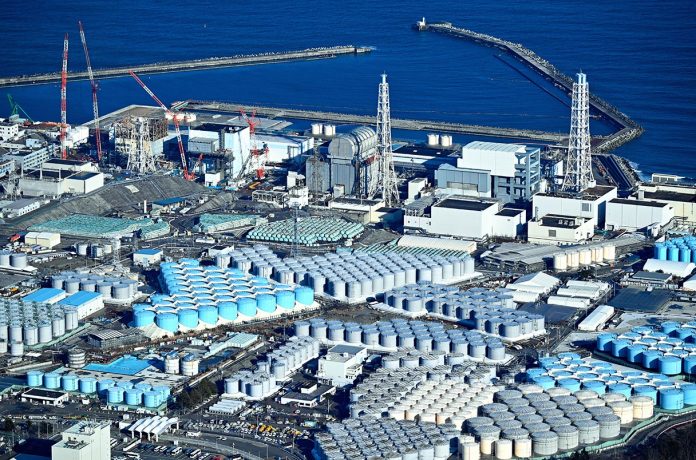
By Sanjeshni Kumar
Fiji has come under scrutiny from the Pacific Islands Climate Action Network (PICAN) for endorsing Japan’s decision to discharge over one million tonnes of treated nuclear wastewater into the Pacific Ocean despite the fact that the Pacific Islands Forum has commissioned an independent panel of scientific experts.
Fijian Prime Minister Sitiveni Rabuka says he is satisfied with the International Atomic Energy Agency (IAEA) report, that is according to him, “reassuring enough to dispel any fears of any untoward degradation of the ocean environment that would adversely affect lives and ecosystems in our precious blue Pacific.”
But PICAN has alleged that there are differences on the issue within the coalition government as Deputy Prime Minister, Manoa Kamikamica opposed Japan’s dumping plan.
The Deputy PM on 05 April 2023, moving the motion in Parliament regarding Japan’s dumping plan said that “the Pacific Ocean should not be seen as an easy and convenient dumping ground for unwanted and dangerous materials and waste that other larger nations produce and do not want to use in their own ecosystem.”
PICAN emphasised that PM making “unilateral decision” on behalf of the coalition government is “problematic as some of the political parties in the current government have a different stance on this issue”.
“This is an issue that will have far-reaching consequences not only for people in the Pacific today but also for future generations,” the civil society organisation said.
“It’s sad to see the comments being made by the Prime Minister that kind of sends a signal in the wrong direction to the rest of the Pacific Island countries, especially when Fiji is considered a key player in the region.
“We have fought hard to declare the region nuclear-free zone and Fiji being one of the signatories of the Rarotonga Treaty supporting Japan’s plan is upsetting.”
While respecting the sovereignty of governments to make their own decision, PICAN said the nuclear issue is “something that impacts the whole of the Pacific, so there must be a regional approach to this issue” with further discussion and consultations.
Thus, the organisation stressed that PIF commissioned scientific expert’s concerns must be considered by Pacific leaders.
“It’s far from one being reliable and inconsistent and this is probably something that the Pacific as a region must kind of weigh in on the scientific experts and their findings.
“Governments must uphold the precautionary principle and wait and trust the PIF scientific experts.
“We need PIF independent scientific experts to review some of the data, review the process and ensure that we are not compromising, not only the future of our ocean but most importantly the future of our future generations.
“We cannot sell out our future and the future of our children and their children to address some of the economic debt that governments have gotten into with Japan and some of the development agencies from Japan.
“Our Ocean is already under threat from pollution, overfishing, and global warming, and now we are adding on another level of stress and burden to our Pacific Ocean and as custodians and stewards, it’s our role to push back against this disastrous plan by Japan.
“We depend on the ocean for sustenance, livelihood, our well-being and now it’s being considered sort of a dumping ground by some of the larger powers and that’s been the case over the last decade.
“This is a moral imperative for us in the Pacific to protect the ocean and we cannot allow Japan to go ahead with these plans.
“We strongly believe that Japan must explore other safe alternatives to dispose of these nuclear waste water because there is not enough scientific data.”
PICAN has “strongly urged” Pacific Island countries to explore legal avenues to hold Japan accountable for its action, whether through special procedures or international courts if Japan plans to go ahead with its plan.
SOURCE: PACNEWS/PASIFIKA ENVIRONEWS












